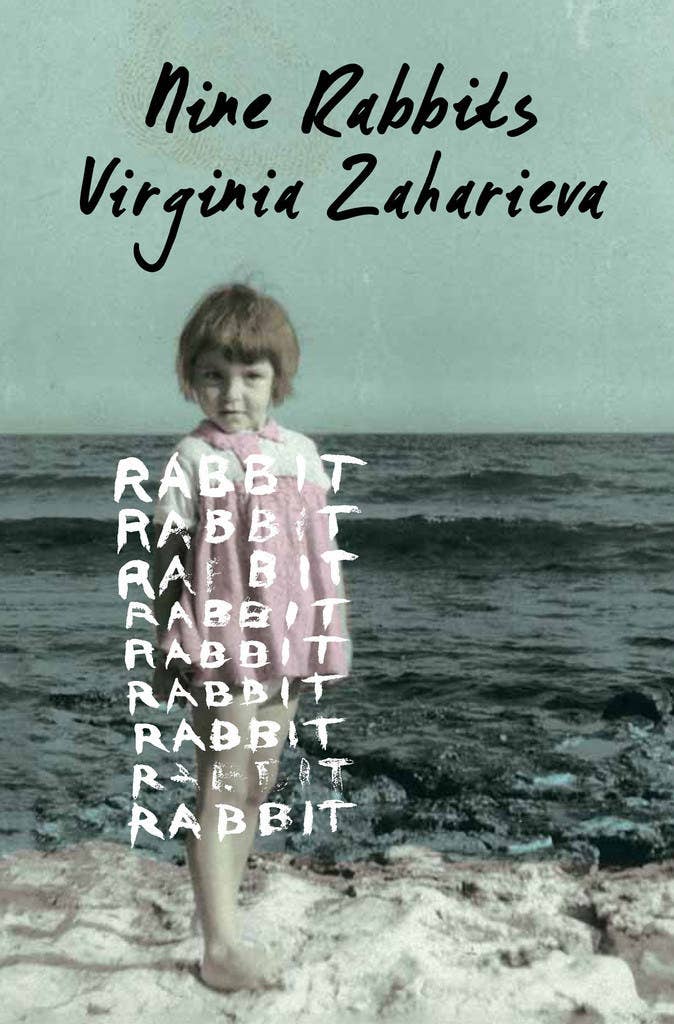
Virginia Zaharieva's novel Nine Rabbits was first published in 2008 in her native Bulgaria, where it fast became a bestseller and still remains one of the most celebrated books to appear over the past two decades. Based largely on Zaharieva's own life, Nine Rabbits begins in 1960s Bulgaria, during the height of Communism, and follows six-year-old Manda as she survives her abusive grandmother and rural poverty by finding sheer delight in the world — in plump vegetables, in garden gnomes, in darkened attic corners. The young Manda endures severe beatings, seemingly indestructible, but later, as a middle-aged artist and frustrated writer in newly democratic Bulgaria, she desperately tries to feed her damaged soul. Zaharieva peppers her narrative with real recipes related to Manda and the characters around her. The author creates lush gardens, nostalgic meals and sensual memories as charming as her narrator.
An accomplished writer, psychotherapist, feminist and mother, Zaharieva won national acclaim with Nine Rabbits, which literary critics held as evidence of her standing as a brilliant representative of Bulgarian ecriture feminine. In anticipation ofher book tour supporting the newly released English translation of Nine Rabbits (out now from us, Black Balloon Publishing), we spoke with Zaharieva about her motivations behind the novel, her philosophy on food, the literary landscape of Bulgaria and more:

Black Balloon Publishing: What compelled you to write Nine Rabbits? The book plays with and subverts the expectations of both a novel and a memoir — explain why you’ve fictionalized a story that resonates so close with your own.
Virginia Zaharieva: I wrote this book to try to fix the past and to gain distance from the present. I always wanted to write a novel, and I wrote Nine Rabbits to try and put my identity in order, and to arrange some stories in order to stop telling them over and over again to myself. I wrote this book in order to open more space for celebrating my life here and now. I also wanted to write a novel for people looking for a balance between their enormous appetites and their desire to live simply.
Some of the most significant and delightful elements of Nine Rabbits are the recipes that punctuate the novel’s prose. What purpose do the recipes serve within the form and narrative of the book?
This is a tasty book — you can read and eat from it! Seriously though, the recipes in the novel are characters themselves. I include them as nourishing moments for the reader. Just as in difficult times we might turn to a comforting dish or in times of celebration prepare a feast, I wanted to offer dishes that play the role of counterpoint in the narrative. Where there is cruelty, food can shelter us. For example, when we discover that Manda’s grandmother has cooked and skinned the family cats, I offer dumplings to calm the book’s emotional tone. Other recipes are there to celebrate new love (dishes best eaten in bed!), to offer tenderness (with a fluffy apple pie) or to laugh at our families’ beloved eccentricities (hot peppers for supper). I suppose the recipes are also a type of pause, a silence within the text. And the recipes gathered here are simple and delicious — it is my pleasure to share them.
Do you have a philosophy around the art of cooking or the culture of eating?
For me, cooking and eating are forms of meditation. And I love reading cookbooks cover to cover, as if they are novels. Once in a Paris library, I discovered to my surprise that along with Tao Te Ching, Lao Tzu bequeathed to us principles for eating. In fact, both books contemplate the same subject — the art of living. Here are some of his maxims that I have committed to memory and practice:
-If possible, prepare your food yourself.
-Cook so that the ingredients don’t lose their color.
-Make sure to have at least five colors in your dish.
-When you cook, cook; when you eat, eat.

